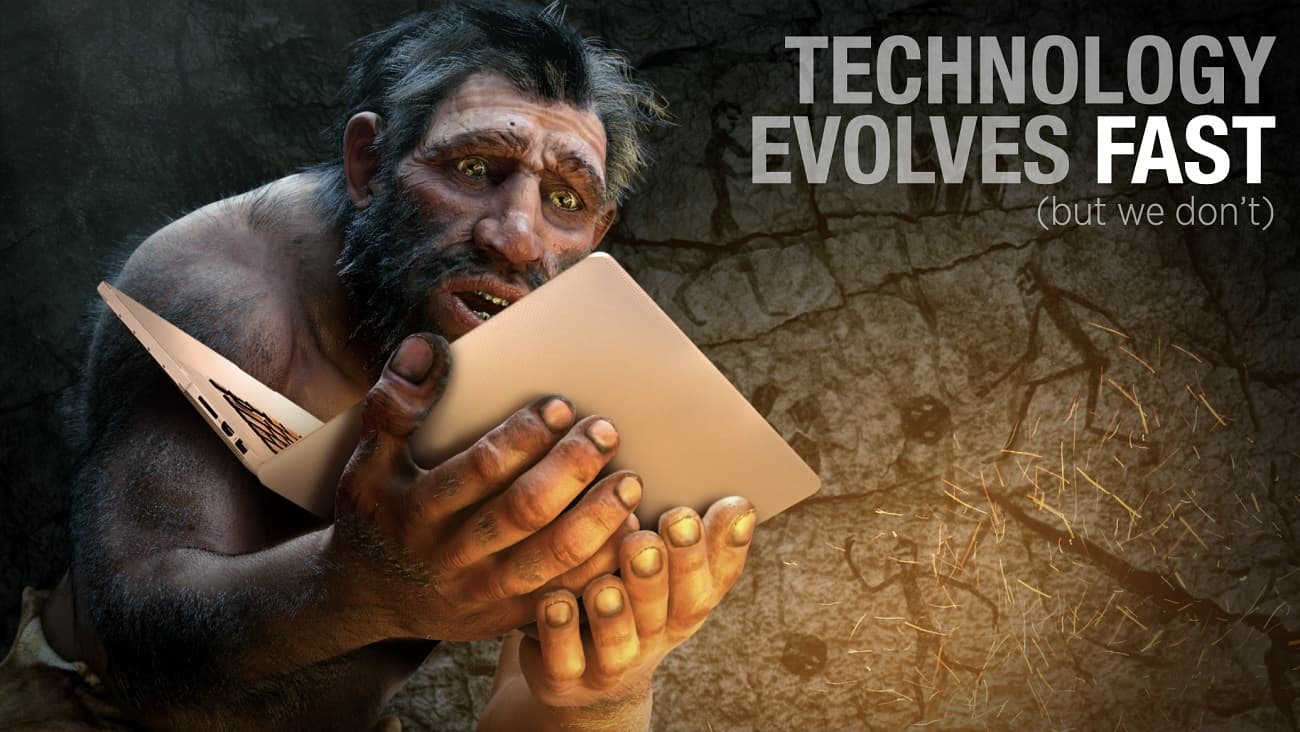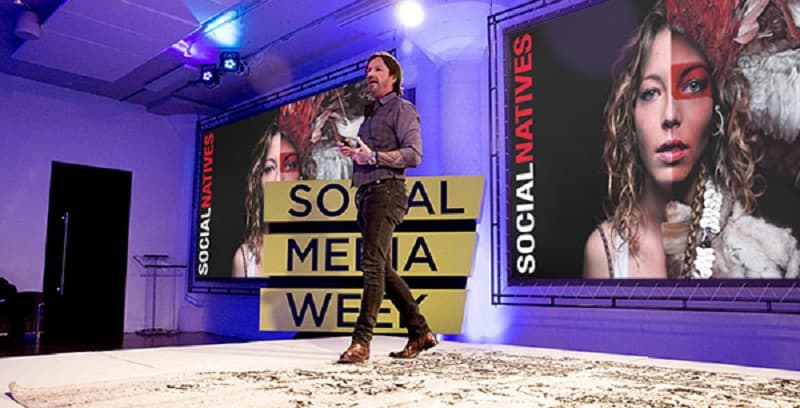“Emotionally, we're still in the Stone Age”
Patrick Mulford says tech is creating social constructs that didn't exist a generation ago.

“I don't know if there is an orthodox journey that anyone takes into digital, but I guess mine was relatively unorthodox,” begins Patrick Mulford, CEO of digital agency Clock. “I've got a background in architecture and I've got a master's in anthrozoology. But more importantly, I've always been a storyteller. At one point I was telling stories through graphic design and photography, and at another point I was documenting relationships between humans and animals.”
Patrick thinks it used to be easy for the mass media to tell stories as we were all living in close communities. “You had 150 people that you were close to and they lived close. They were school friends, work friends, family, people in your town or village. Our networks were quite insular so it was quite easy for mass media to engage those people. People had to buy that media product,” he says.
Of course, media is global now. It has been completely disseminated. “If you look at your social connections now, they're all over the world, and they're engaging with all sorts of types of media. And the stories people are listening to come from so many different sources. It's so much more difficult to engage people, especially for extended amounts of time, but also monetize that engagement when a lot of the time it's free in other places.”
 Patrick Mulford, CEO of Clock, on stage at Social Media Week conference
Patrick Mulford, CEO of Clock, on stage at Social Media Week conference
“The world is changing. And it's accelerating at a pace that we haven't seen before. I mean, it's an exponential acceleration,” Patrick continues. The way that people are engaging with content and culture is moving very fast, which is scary, but also presents opportunities from a tech perspective.
Milk and technology
Patrick did some research a few years ago around the psychology of social networks and how human beings evolve. “We're social animals, and we evolve very, very slowly. 20,000 years ago, we were all lactose intolerant,” Patrick says. “We didn't need to keep the enzymes that enable us to drink milk after we've been weaned.”
So humans were only lactose persistent until we were 12 months old and then we didn't drink milk. But over the years we've been keeping cows and goats and we started drinking milk. “Now around 85% of Europeans and 90% of Americans are lactose persistent until their old age. And that's just one example of human beings evolving over the last 20,000 years,” he adds.
“Technology is evolving so rapidly and the way we're interacting with it is evolving rapidly. Intellectually, we can’t keep up.” He mentions that we can learn how to use a new device and we can interact with each other in new and different ways over the internet, but “emotionally, we're still in the Stone Age” he thinks.
“Nowadays, for teenagers, 50% of their friends are people they've never met – they're people that they only know online.” The concept of ‘being the popular kid’ at school and similar anthropological dynamics have existed for hundreds of years; nowadays children are gravitating towards people online. Completely new social constructs that never existed a generation ago now dominate our lives.
 Nowadays for teenagers, 50% of their friends are people they only know online
Nowadays for teenagers, 50% of their friends are people they only know online
“We don't know what that means for us, for our mental wellbeing and for our psyche,” Patrick continues. It’s fascinating and worrying.” Sometimes this dovetails nicely with the work Clock does. They are proudly B Corp accredited; many people believe that this award is for environmental sustainability but it also looks at social impact on staff and stakeholders.
Working "on top of each other"
“I wrote a piece recently about how everybody's still saying how great it is to work from home,” Patrick continues. “ If you're privileged enough to have a nice private office space to work from, and you don't have to commute, it might be quite nice to work from home.”
But most people aren't in a position where they have a spare room that they can work from. Certainly most couples and families don't have multiple spare rooms to work from. Many people are working “on top of each other” or from sitting rooms or kitchens – yet another huge shift in the traditional ‘going to work’ social dynamic that has existed for millennia. It’s common knowledge that it is smart to have a separation between the workplace and the home so could this cause further issues for our mental health?
“I think it's great to be able to focus and apply yourself to the task at hand in a quiet environment and get stuff done, but you can also go stir crazy very quickly. I don't think we've solved it,” Patrick worries. “In particular, creativity is much more difficult. You don't get as much out of a brainstorm session when four people are at different ends of the planet; the energy is different.
 Many people work from home nowadays – a huge shift in the ‘going to work’ social dynamic
Many people work from home nowadays – a huge shift in the ‘going to work’ social dynamic
He and his colleagues at Clock are doing a lot to kind of explore what can be done from a team dynamics perspective to make sure that everybody is actually happy at work. “We’re asking questions like ‘Was not having to commute good for a few weeks but now you're just kind of pulling your hair out in a room, not seeing anyone?” Patrick ponders.
It seems that Clock are not only finding ways to get the most out of technology for their clients, but for their employees and perhaps even for the human race too - it’s certainly interesting that, on their website, one of the listed services they offer is ‘Behavioural Science’ – and this service is listed well above ‘Engineering’, ‘Data’ and ‘Development’. It seems perhaps anthrozoology is a lot more important to the development of technology than any of us thought
“I go back to what I said right at the beginning. It's about technology and storytelling; the storytelling bit is exactly what we've been doing since the Stone Age and the technology facilitates it in new and interesting ways and makes it really fascinating,” Patrick concludes.
More information
To read more about Patrick Mulford, and Clock's products and services, go to clock.co.uk.
Have an audience?
Customers like Mythical (28+ million subscribers) rely on Memberful to power their membership communities.
Get started for free